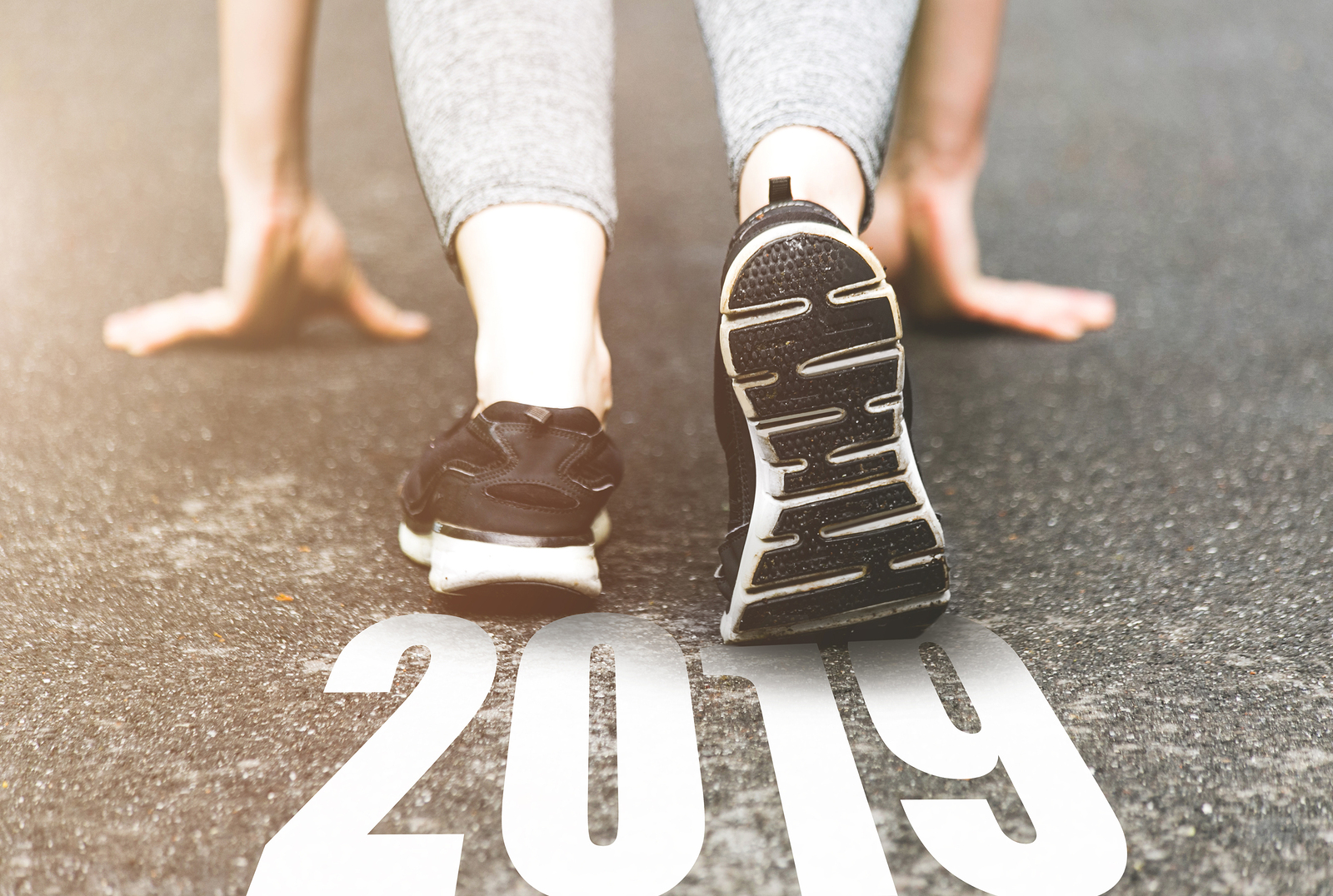
Commonly associated with athletes and bodybuilders, creatine has long been thought of simply as a supplement for enhancing muscle strength and athletic performance. But increasingly many of us in the medical community are beginning to realize the role creatine supplementation can play in helping our patients with a variety of issues. From injury recovery to supporting bone health, creatine can help your patients lead a better quality of life.
So what exactly is creatine, and how does it work?
Contrary to a common myth, creatine is not a steroid. In fact it’s a short chain amino acid (glycine and arginine) produced naturally by the liver and kidneys. It’s found primarily in brain and muscle cells. In muscle its purpose is to regulate energy by converting adenosine diphosphate (ADP) to the energy molecule adenosine triphosphate (ATP). In this way creatine is directly responsible for making energy available in muscle cells. Think of creatine as fuel for working muscles, called upon when needed to provide the energy necessary for contraction.
Why supplementation?
While some creatine is manufactured in the body and some can also be found in our diets (primarily in meat), most people don’t make enough or take in enough creatine to adequately meet the needs of an active adult. Natural stores of creatine are rapidly depleted during exercise, resulting in fatigue. But supplementing with creatine increases the amount stored in muscles, literally giving muscles more available energy to contract. This in turn allows people to exercise more, and more exercise means building more muscle, which leads to a range of health benefits:
Injury recovery. It may seem obvious, but an important part of rehab and recovery from any injury is increasing muscle strength. With its muscle building benefits, creatine can help patients recover muscle strength faster following injury or surgery, making rehab easier and shortening recovery times.
Offsetting age-related muscle loss. We see it all the time in our practices: middle-aged and older patients who aren’t as fit, strong, and active as they used to be. One of the primary culprits is sarcopenia, the normal age-related muscle loss we all experience as we grew older. Starting in our 30s, we can lose up to five percent of our muscle mass per decade. Left unchecked, age-related muscle loss can result in impaired functional performance, frailty, and a generally lower overall quality of life. People are often left on the sidelines, unable to fully participate in the activities they enjoy. But creatine can help patients offset age-related muscle loss. It has even been shown to slow or completely stop muscle loss in older adults, even without exercise.
Bone health. Creatine can indirectly help bone health too. Current research clearly shows that maintaining stronger muscles helps reduce the incidence of falls in older adults. Over a quarter of adults over age 65 suffer a fall each year, often resulting in devastating injuries such as broken bones. So for our older patients, maintaining muscle strength and function is essential to maintaining bone health and staying active. In addition, there is also some research suggesting bone mineral density may be positively affected by combining creatine with resistance training.
Creatine is safe and effective in adults of all ages
Creatine is one of the most well studied and widely used supplements in the world. It has been shown to be safe and well tolerated in amounts of up to five grams daily. And research into its efficacy shows clearly that when combined with exercise, creatine supplementation increases muscle strength in adults of all ages.
So creatine isn’t just for athletes anymore. Given it’s ability to help build muscle and offset age-related muscle loss, anyone rehabbing an injury or over age 35 should consider it as an important addition to their supplement regimen.
Interested in getting more insights from Naomi? Check out our online courses Common Injuries in Triathletes: Diagnosis and Treatment and Preventing Ski and Snowboard Injuries
About the author
Dr. Naomi L. Albertson is Board Certified by the American Academy of Family Physicians and specializes in the non-surgical management of musculoskeletal problems, sports injuries, concussions, and the treatment of osteopenia and osteoporosis. A graduate of Tufts University School of Medicine, Dr. Albertson practices at the Reno Orthopedic Clinic. Her interest in bone health, exercise physiology and maximizing performance led her to develop Dr. Ni’s OC2, a bone health and muscle strength supplement for the unique frame support needs of adults over age 35. www.boneandmuscle.com.
References
Kreider, RB et al., Journal of the International Society of Sports Nutrition (2017) 14:18 DOI 10.1186/s12970-0173-z
Doherty TJ. Invited review: Aging and sarcopenia. J Appl Physiol 95, 1717-1727
Terjung RL, Clarkson P, Eichner ER, Greenhaff PL, Hespel PJ, Israel RG, Kraemer WJ, Meyer RA, Spriet LL, Tarnopolsky MA, Wagenmakers AJM, Williams MH: The American College of Sports Medicine Roundtable on the physiological and health effects of oral creatine supplementation. Med Sci Sports Exerc 2000, 32(3):706-717.
Gotshalk LA, Kraemer WJ, Mendonca MA, Vingren JL, Kenny AM, Spiering BA, Hatfield DL, Fragala MS, Volek JS. Creatine supplementation improves muscular performance in older women. Eur J Appl Physiol 2007.
Gotshalk LA, Volek JS, Staron RS, et al. Creatine supplementation improves muscular performance in older men. Med Sci Sports Exerc. 2002 Mar;34(3):537-43.
Chrusch MJ, Chilibeck PD, Chad KE, Davison KS, Burke DG. Creatine supplementation combined with resistance training in older men. Med Sci Sports Exerc. 2001 Dec;33(12):2111-7.
Pinto CL1, Botelho PB1, Carneiro JA2, Mota JF1. Impact of creatine supplementation in combination with resistance training on lean mass in the elderly. J Cachexia Sarcopenia Muscle. 2016 Jan 18. doi: 10.1002/jcsm.12094.
Brose A, Parise G, Tarnopolsky MA. Creatine supplementation enhances isometric strength and body composition improvements following strength exercise training in older adults. J Gerontol A Biol Sci Med Sci. 2003 Jan;58(1):11-9.
Chanutin A: The fate of creatine when administered to man. J Biol Chem 1926, 67(1):29-41.
Brosnan ME, Brosnan JT. The role of dietary creatine. Amino Acids. 2016, 48(8): 1785-91.
Candow DG1, Forbes SC, Little JP, Cornish SM, Pinkoski C, Chilibeck PD. Effect of nutritional interventions and resistance exercise on aging muscle mass and strength. Biogerontology. 2012 Aug;13(4):345-58. doi: 10.1007/s10522-012-9385-4. Epub 2012 Jun 9.
El-Khoury F, Cassou B, Charles MA, Dargent-Molina P. The effect of fall prevention exercise programmes on fall induced injuries in community d welling older adults: systematic review and meta-analysis of randomised controlled trials. BMJ. 2013;347
Chilibeck PD, et al. Creatine monohydrate and resistance training increase bone mineral content and density in older men. J Nutr Health Aging. 2005;9(5):352-3.
Our Story
WebExercises was created by clinicians who wanted to find a better way to help patients succeed with their exercise rehabilitation programs. As clinicians we are limited with time therefore WebExercises was developed to efficiently design exercise programs. We offer an engaging patient experience that can be monitored virtually by the clinician keeping your patients motivated outside of your office. Since 2005 we have delivered over 20 million exercises saving clinicians time and improving patient adherence. To find out more how WebExercises can improve your practice call us 866-411-4825 or visit webexercises.com/join

